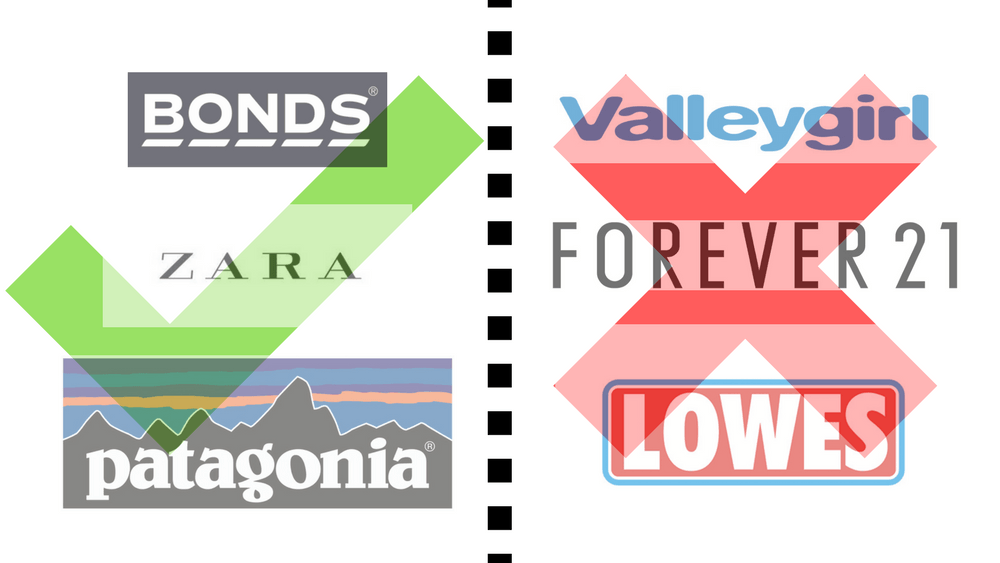Zara, Patagonia and Cotton On are leading the way in ethical fashion production, according to the latest Ethical Fashion Report released on Wednesday by Baptist World Aid.
The report measures 106 companies’ commitments to protecting the labour rights of their workers, focusing on worker empowerment and knowledge of the supply chain. It ranks them from A to F based on their performance mitigating the risks of exploitation at every level of production.
Four years after the initial report, which was prompted by Bangladesh’s Rana Plaza factory collapse that killed 1136 garment workers, Baptist World Aid says there has been significant improvement in both transparency and labour rights.
“In 2013, the proportion of companies that could demonstrate improved wages for workers was 11 per cent. It has risen each year and now stands at 42 per cent,” reads the report.
As an example, Australian discount department store Kmart is piloting a wage-monitoring system in Bangladesh, to move towards sustainable improvements in wages, and ultimately a living wage, enabling workers to lift themselves out of poverty.
One significant improvement has come in the area of supply chain management.
The top performers in the report were fairtrade companies such as Etiko, Mighty Good Undies and RREPP, which all received A+ grades. Zara and Patagonia, both multinational corporations, each received an A grade. Cotton On Group (Cotton On, Supre), APG & Co (JAG, SABA, Sportscraft) and Pacific Brands (includes Bonds, Holeproof, Jockey, Berlei, Sheridan and Tontine) received A- grades.
Companies were graded on publicly available information combined with any information they are willing to disclose to Baptist World Aid. Non-responsive companies were generally given an F grade, unless publicly available information mitigated this grade.
Baptist World Aid “acknowledges that many of the non-responsive brands may be doing more to improve their ethical sourcing than we have been able to assess them on. However, if brands do not disclose, or are unwilling to disclose, what they are doing to ensure that workers are not exploited in their supply chains, then it becomes near impossible for consumers and the public to know if these brands are investing sufficiently to mitigate these risks.”
Baptist World Aid says all Australians share the responsibility for continuing the progress that has already been made.
Apart from the non-responsive brands, the worst performing brands were Valleygirl, TEMT, Lowes and Forever 21, all scoring D grades.
The research shows that one significant improvement has come in the area of supply chain management.
Back in 2013, most companies argued that tracing the supply chain of their materials was outside their sphere of responsibility, but today, 45 per cent of companies are seeking to trace their cotton suppliers. But the task remains enormous, with only 7 per cent of companies knowing where all their cotton comes from.
The majority of the garments we wear are produced in the Asia-Pacific region, with more than 40 million people employed in manufacturing textiles. The International Labour Organisation estimates that more than half the world’s forced labourers (11.7 million), and 78 million of its child labourers are in this region.
But such large figures provide unprecedented opportunities for exploitation and unsafe working conditions.
Baptist World Aid says all Australians share the responsibility for continuing the progress that has already been made.
“You, as consumers, can do more by preferencing those companies doing the most to uphold the rights of workers in their supply chains, and by calling on those that aren’t to do better,” it says.
“This report hopes to … help the fashion industry realise its potential to contribute to a world free from poverty and exploitation.”



